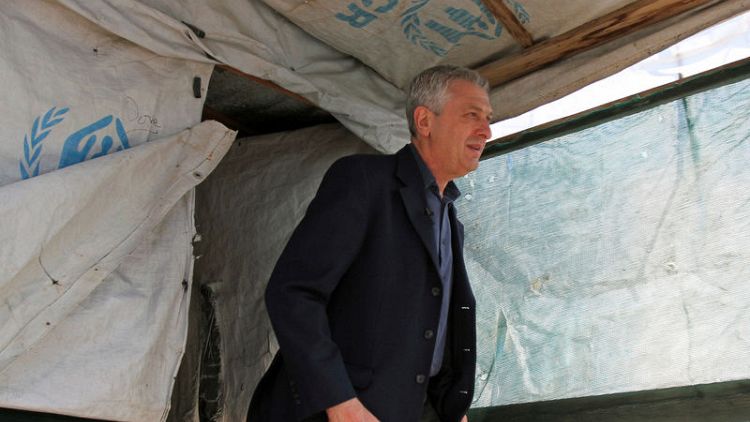By Michelle Nichols
UNITED NATIONS (Reuters) - United Nations refugee chief Filippo Grandi warned on Tuesday that a deadly attack on two New Zealand mosques was the result of the worst toxicity in politics and media toward refugees, migrants and foreigners that he had witnessed in more than 30 years.
In an attack broadcast live on Facebook, a lone gunman armed with semi-automatic weapons targeted Muslims attending Friday prayers in Christchurch on March 15, killing 50 worshippers and wounding dozens of people.
A suspected white supremacist from Australia has been charged with 50 counts of murder.
Grandi told the U.N. Security Council that the state of discussions globally about refugees and migrants "should be of concern to us all." He did not specifically blame anyone.
"I have never seen such toxicity, such poison in the language of politics, in media, in social media, even in everyday discussions and conversations around this issue," Grandi told the 15-member council during a meeting on the global refugee situation.
"Toxicity that focuses - sadly, tragically - often on refugees, on migrants, on foreigners," he said. "What we have seen in Christchurch, New Zealand, is the result also of that toxic language of politics."
In the wake of the shootings, Australia has been gripped by acrimonious debate about both its past race policies and whether recent political discourse about immigration and Islam had any role to play in the accused gunman's radicalisation.
The man said - in a manifesto distributed online just before the Christchurch attack - that he formed his racist beliefs on the internet and downplayed his links to Australia, saying he was radicalised abroad.
The manifesto also praised U.S. President Donald Trump as "a symbol of renewed white identity and common purpose."
White House director of strategic communications Mercedes Schlapp responded at the time: "It's outrageous to even make that connection between this deranged individual that committed this evil crime to the president, who had repeatedly condemned bigotry, racism, and has made it very clear that this is a terrorist attack."
Muslims worldwide have praised New Zealand's response to the massacre, with many singling out Prime Minister Jacinda Ardern's gesture of wearing a headscarf to meet victims' families and urging the country to unite with the call: "We are one."
Grandi described the response by the people and leadership of New Zealand as "exemplary."
"Respond to these toxic trends in a firm and organised manner, restate the values that underpin the solidarity that we must provide to refugees and reaffirm ... that our societies will not be really prosperous stable and peaceful if they do not include all," he said.
(Reporting by Michelle Nichols; editing by Jonathan Oatis)
